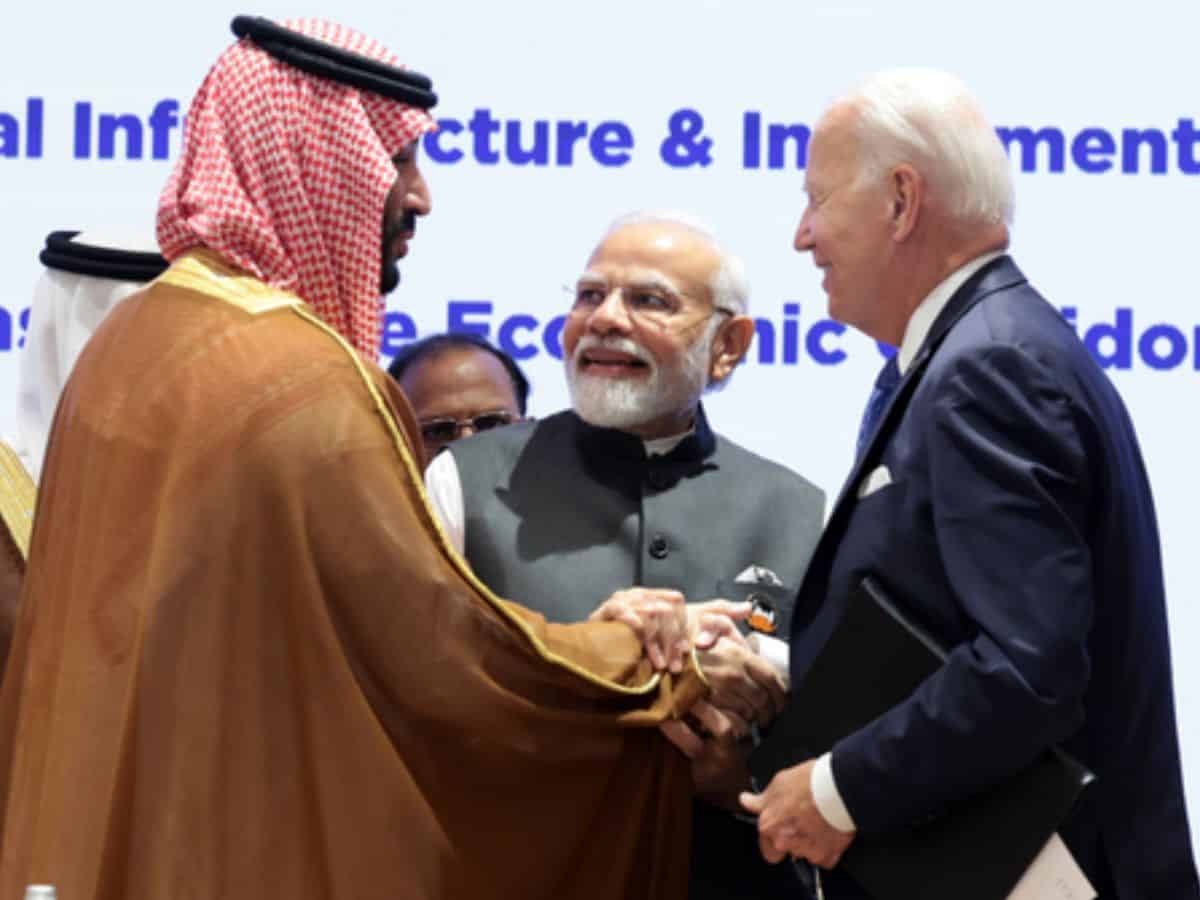
Washington: As US President Joe Biden was prepared to leave for the G20 meeting in New Delhi, a question that was most frequently asked from his officials was whether or not he would meet Saudi Arabia’s Crown Prince Mohammad bin Salman.
There is no meeting on Biden’s schedule, his officials told reporters, but there is no saying what could happen when leaders gather in a small space.
No bilateral meeting of the two leaders has been reported till the end of Day 1 of the G20 summit, but they did share the stage with Prime Minister Narendra Modi and other leaders and the three of them clasped hands at the announcement of a major infrastructure initiative to connect India, West Asia and Europe with a port and rail network, an unmistakable attempt to counter China’s Belt and Road Initiative.
Prime Minister Modi called it “an important and historic partnership”. Biden said, “This is a big deal.” And MSB, as the Saudi crown prince is known, called the initiative a “founding step to establish this important economic corridor”.
Once a predominant player in West Asia — as the Middle East is called in India — the US has a new and ambitious rival in China, which has aggressively advanced its presence in recent times.
The detente it brokered between Saudi Arabia and Iran earlier in the year was its announcement move and it successfully pushed for the expansion of BRICS to add four West Asian nations, which was done at the recent meeting of the group in Johannesburg, South Africa. China and Russia view BRICS and other non-Western platforms such as the Shanghai Cooperation Organization as counterweights to US-led Western groupings.
US relations with Saudi Arabia have turned frosty on Biden’s watch, chiefly because his-pre-election vow to turn Saudi Arabia into a global “pariah” for MBS’s alleged involvement in the murder of Jamal Khashoggi, a Saudi journalist exiled in the US.
Once in office, Biden has sought to work with the crown prince without turning into a full embrace — a fist bump is all he allowed himself on a visit to the desert kingdom.
Saudi Arabia, in return, declined to play ball with the US on oil prices. The Saudis said that the Biden administration had asked the de-facto leader of the OPEC, the oil cartel, to postpone a decision on production cuts — which would have the effect of increasing prices — in October 2022 by a month, till after the November midterms. Riyadh turned down the request saying all such decisions are based solely on economic factors. An angry White House said the US was “re-evaluating” ties with Saudi Arabia.
US ties with Saudi Arabia have been problematic, but Washington continues to work with other nations in West Asia. A new group of nations was announced in 2021 called I2U2, comprising India, Israel, UAE and the US to promote “joint investments and new initiatives in water, energy, transportation, space, health, and food security”.
The US has worked with parties in the region to end the civil war in Yemen, which recently saw the extension of a UN-led ceasefire by a few more months and the Biden administration counts it among its successes in the region. The truce between Iran and Saudi Arabia, who have backed opposing factions in the civil war, helped as well.
The Biden administration is also working on a mega normalization deal between Saudi Arabia and Israel, which promises to be the ultimate game-changer in West Asia. National Security Adviser Jake Sullivan visited Riyadh as part of this effort in July and a delegation of senior American officials will be there this week as a follow-on action.
Asked about the chances of a framework or deal being ready for signature, Sullivan told reporters on the way to New Delhi Friday: “Many of the elements of a pathway towards normalization are now on the table. We don’t have a formal framework. We don’t have the terms, you know, ready to be signed. There’s still work to do. And we’re working through it. But I think there’s a broad understanding of many of the key elements, and the specifics require an incredible amount of legwork, discipline, and rigour. And all of the stakeholders in this are applying that as we speak.”
The Biden-led US has a new rival in Wet Asia, but it’s not conceding anything.

